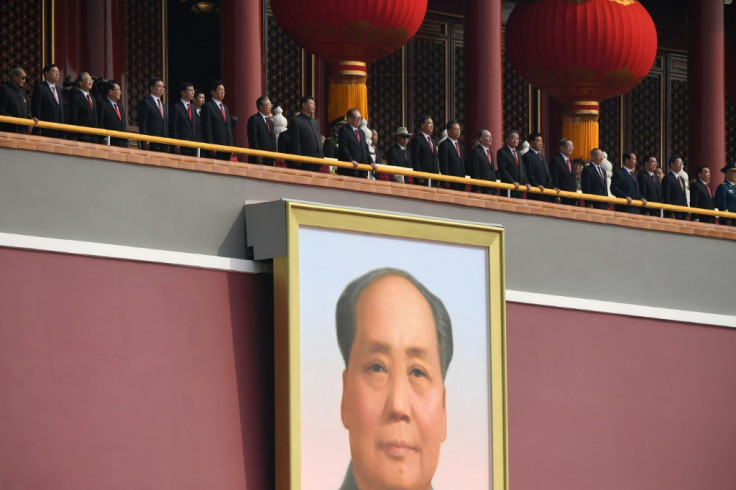China celebrates 70 years as Hong Kong braces for unrest
In Hong Kong pro-democracy protesters hit the streets early in a bid to grab the spotlight from Beijing, with a series of rallies.
Crowds took their seats at Beijing's Tiananmen Square on Tuesday for a huge military parade to celebrate 70 years of Communist Party rule, as a day of protest began to unfurl in seething Hong Kong.
Authorities in Beijing had closed roads, banned the flying of kites, and shut bars as they tightened security for an event marking China's journey from country broken by war and poverty to the world's second-largest economy.
A phalanx of tanks and other military hardware will roll across Tiananmen Square under the gaze of President Xi Jinping, the country's most powerful leader since Mao Zedong, who founded the People's Republic of China on October 1, 1949.
New weapons -- including a hypersonic drone and an intercontinental ballistic missile whose range encompasses the United States -- are expected to make their public debut, according to Paris-based analysts.
"Unity is iron and steel. Unity is a source of strength," Xi said in a speech on Monday evening.
But behind the festivities, a clutch of challenges tests Xi's ability to maintain economic and political stability.
"The party hopes that this occasion will add to its legitimacy and rally support at a time of internal and external challenges," Adam Ni, China researcher at Macquarie University in Sydney, told AFP.
US trade war negotiations have dragged on, and African swine fever has raced through the country's pig supply, sending pork prices soaring.
But the major headache is Hong Kong, where pro-democracy protesters hit the streets early in a bid to grab the spotlight from Beijing, with a series of rallies against what they see as the erosion of their special freedoms.
Hong Kong police said they were expecting violence across the city, warning it could be "very, very dangerous", while masked protesters said that "in the face of tyranny, we can only fight as if our last battle".
Officers fanned out across the territory and small pockets of demonstrators marched through the streets, while local officials watched a flag-raising ceremony behind closed doors.
The semi-autonomous city has been embroiled for months in the worst unrest since Britain returned the financial hub to China in 1997, with police and hardcore protesters trading tear gas and petrol bombs.
'Protect its interests'
Xi vowed Monday to continue to "fully and faithfully implement" the one country, two systems policy under which Hong Kongers enjoy freedoms unseen on the mainland.
Communist Party grandees will watch as 15,000 soldiers march across Tiananmen, 580 pieces of military equipment are shown off and 160 aircraft roar overhead.
It will be followed by a pageant involving 100,000 civilians and 70 floats depicting China's greatest achievements. Organisers will release 70,000 doves and 70,000 balloons before an evening performance and fireworks in Tiananmen.
"Beijing wants to highlight its military modernisation, political unity, and determination to protect its interests," Ni said.
Crowds began to take their seats for the parade early Tuesday but access was limited.
Authorities usually close factories to ensure blue skies during major events, but unhealthy smog covered the Chinese capital on Tuesday.
'Chinese dream'
The Communist Party has repeatedly defied the odds to remain in power for seven decades.
Under Mao, tens of millions of people died during the disastrous Great Leap Forward, and the country was plunged into violent chaos during the decade-long Cultural Revolution.
After Mao's death in 1976, the party launched the reform and opening-up policy under paramount leader Deng Xiaoping, starting decades of breakneck growth and development.
But the party retained a stranglehold on power, sending troops to end the biggest challenge to its rule in 1989 when pro-democracy protesters occupied Tiananmen Square.
Xi has made clear that he believes only the Communist Party can make the country realise its dream -- with him at the helm.
"The Communist Party will continue to ensure that it remains the sole political authority in China," said Drew Thompson, visiting senior research fellow at Singapore's Lee Kuan Yew School of Public Policy.
"It will continue to adapt to do that and it will continue to seek to provide social goods and economic goods for its people, and as long as it continues to deliver those public goods, then it will likely stay in power, but the manner by which it does I think will change over time."
Copyright AFP. All rights reserved.

© Copyright IBTimes 2025. All rights reserved.



















